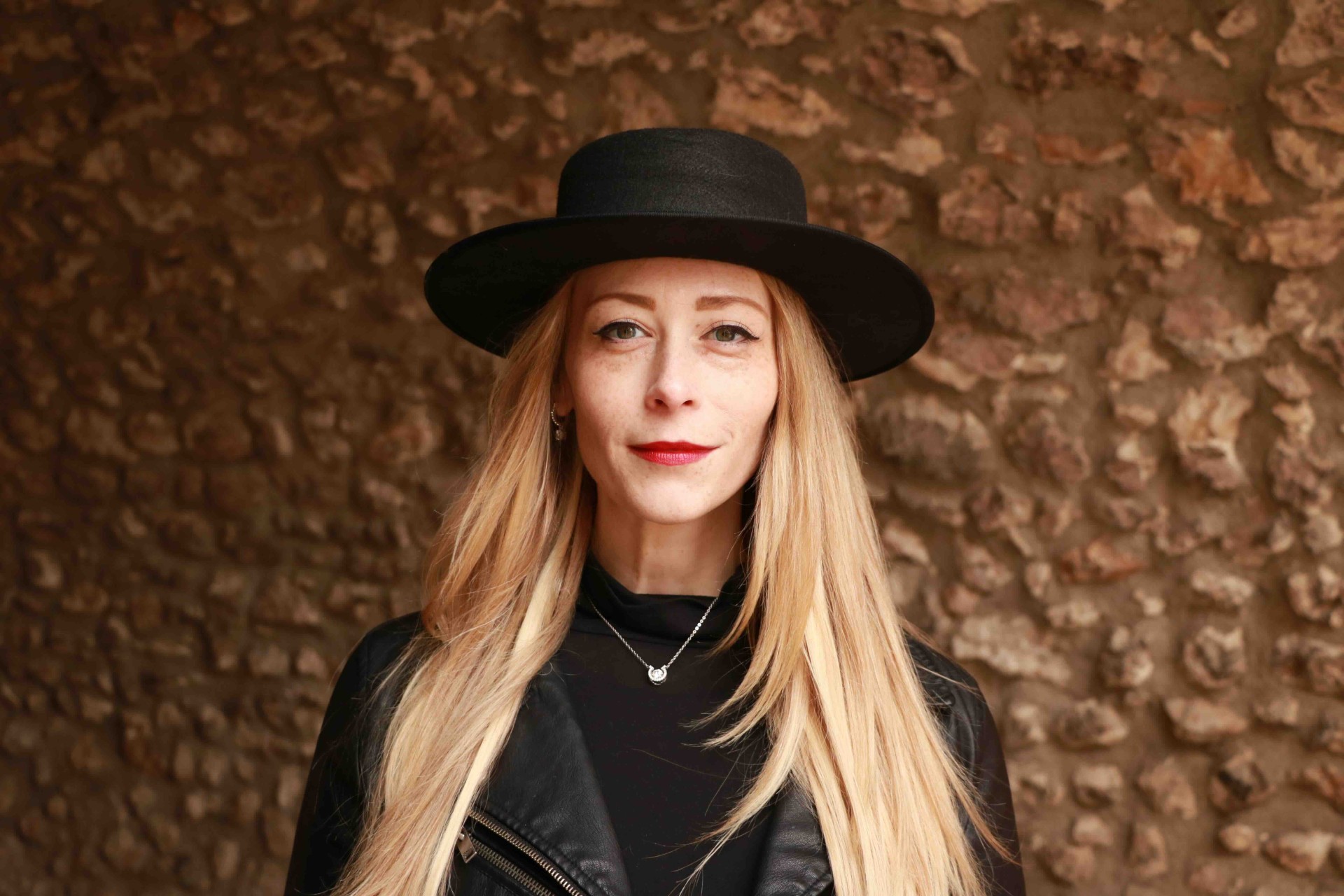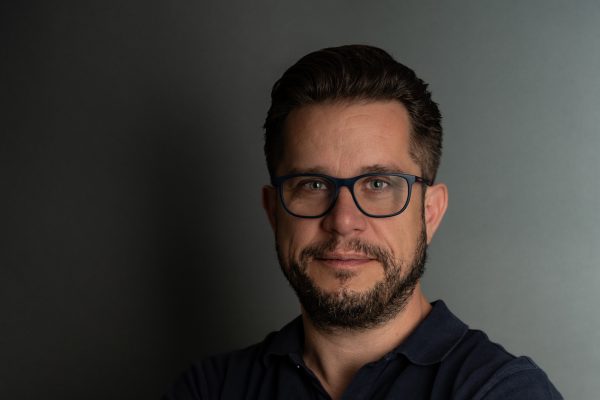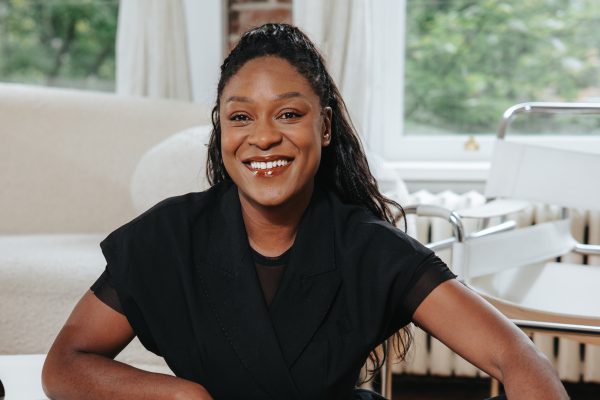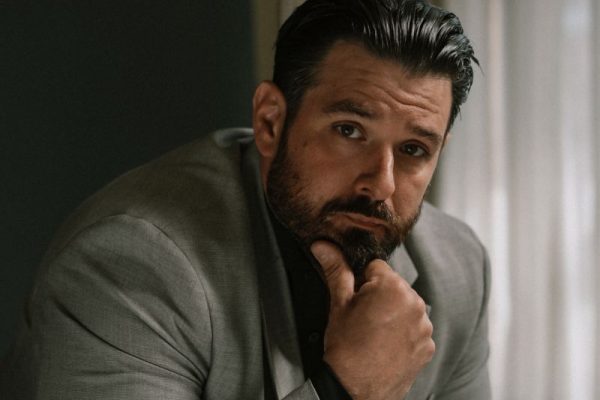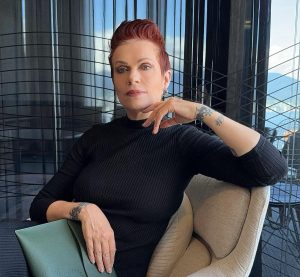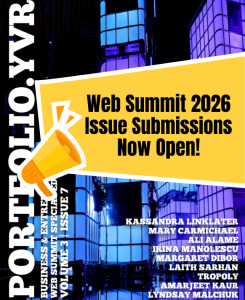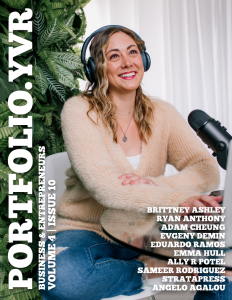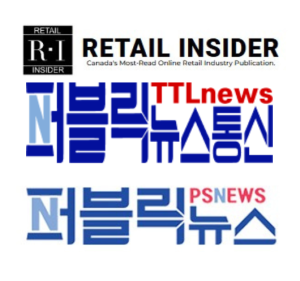Kassandra Linklater is a civic entrepreneur, strategist, artist, and investor shaping some of Canada’s most ambitious innovation plays. Known for fusing capital, culture, and civic imagination, she has helped redefine how tech ecosystems are built—and how global stages are won.

Over the past half-decade, Kassandra has been at the forefront of Vancouver’s innovation and placemaking movement, transforming the city into a launchpad for frontier technology, creativity, and economic transformation. In 2022, she co-founded the Frontier Collective. Less than a year later, she co-chaired the winning bid to bring Web Summit (formerly Collision) to Vancouver—an unprecedented alignment of industry, government, and global influence that catalyzed nearly $1 billion in economic impact for British Columbia.
A former tech founder who built one of Canada’s largest virtual university platforms and launched University Confidential to support students navigating post-secondary life, Kassandra has also advised global leaders at the G8, G20, and APEC, and has served as the behind-the-scenes architect of several of Canada’s most influential frontier tech alliances.
Today, Kassandra is building out a next-generation investment firm designed to back bold founders, cultural catalysts, and values-aligned ventures shaping the future of the economy. Through Tenacious Ventures, she partners with visionary leaders to unlock capital, navigate complexity, and design strategies that sit at the intersection of technology, policy, and culture.
She is currently writing two books: one exploring the untold history of Granville Island through the eyes of its artists and artisans, and another chronicling the rise of British Columbia’s tech sector, examining the civic and cultural forces that shaped it.
A multidisciplinary creator at heart, Kassandra is also a visual artist and storyteller, known for her love of resin, fluid pigment, and large-scale, emotionally textured works. Her deep affection for Granville Island, where she once helped operate a studio and pop-up gallery, continues to inspire her. For her, the Island is more than a cultural district – it’s a living metaphor for how cities can hold both grit and grace, commerce and craft, edge and enchantment. It’s this fusion of worlds that defines her work – building beauty with boldness and bringing vision to life.
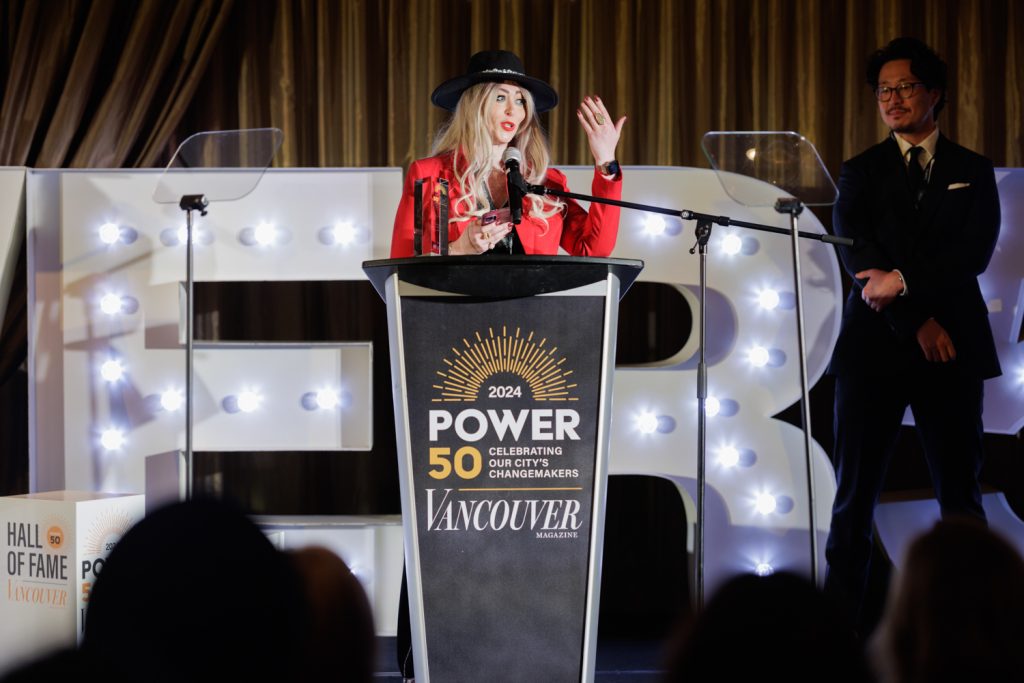
Bringing the World to Our Backyard: the Fight to Bring Web Summit to Vancouver
It begins in Hanoi.
Not in a boardroom. Not in a startup incubator. But in the sticky, rain-soaked heat of a November afternoon in Vietnam, 2006. A teenage girl stands outside the Grand Métropole Hotel Hanoi, her blazer awkward on her shoulders, her nerves wired taut, and a Canadian flag pinned over her heart.
That girl is Kassandra Linklater. Nineteen years old. Fresh off six months of intense training in diplomacy and trade all came down to this week: Linkater was one of six youth chosen to represent Canada at the 2006 Asia-Pacific Economic Cooperation (APEC) Leaders’ Summit. They had just finished pitching to a global audience that included the President of Peru, and were just about to brief the Prime Minister of Canada on their success.
“We were told the future of the country depended on us,” she recalls. “We pushed through 103-degree fevers, food poisoning, and imposter syndrome because we were told if given the training, the skills, and the opportunity to lead; we had a duty to fulfill it.”
That duty has defined Linklater’s life ever since. Through startups and collapses. Through illness and resurrection.
The woman who once had to sell her clothes to attend the 2011 G20 Young Entrepreneurs Summit in Nice has just helped bring the largest technology conference in the world to her hometown. Web Summit Vancouver is no accident. It is a masterclass in vision, grit, and civic imagination. And at its heart is a woman who refuses to accept that leadership must look or sound a certain way.

The Firestarter: Trade, Technology, and Tenacity
Before the boardrooms, before the innovation economy – there were buses, borrowed blazers, and boldness. At 18, Kassandra joined her first trade mission to Singapore and Malaysia, representing Canada’s ICT and infrastructure sectors. At 19, she was selected to attend APEC, and by 20, she was chosen as a lead youth negotiator at the 2010 G8 and G20 Summit in Canada.
“Trade missions change lives,” she says. “I saw what happens when you bring young entrepreneurs abroad. Suddenly the world feels within reach.”
That fire caught quickly. In her early 20s, Linklater launched University Confidential, one of Canada’s pioneering virtual university fair platforms. At one point, it was Canada’s largest resource and online publication for helping students transition to university. She pitched it on BNN’s The Pitch and hustled her way through the early startup scene – often sleeping on floors, surviving on snacks, and negotiating with VCs twice her age.
“I was raised on the idea that you don’t wait to be invited,” she says. “You show up, you ask questions, and you build the room if it doesn’t exist.”
But behind the fierce exterior, her body was breaking down. Diagnosed with a rare esophageal disorder, Linklater went from running companies to undergoing feeding tubes and end-of-life planning.
“I went from leading tech panels to being unable to swallow food. Those years humbled me. I thought my life was over,” she says.
And for a time, it was.
The Long Night: Illness, Isolation, and the Invisible Years
Between 2015 and 2019, Kassandra disappeared from the public eye. She was not at panels or pitch nights. Instead, she was in hospital beds, whispering her way through medical charts.
“There were days I couldn’t sit up. I couldn’t brush my own hair. I had been this rising star and then suddenly I was just… gone.”
She doesn’t sugarcoat it. “I lost everything,” she says. “My health. My career. My sense of self.”
But in the dark, something new began to form. A vision. Of what real leadership looked like. Of what it meant to rebuild – not from a place of power, but from creativity.
When her health finally returned, so did her spark.
The Return: Listening Before Leading
In 2020, she clicked into her first tech conference in years: Collision at Home, the virtual pandemic-era edition.
“It was the first thing I could attend as my health returned,” she says. “I wasn’t on stage. I was listening. Reconnecting. Healing.”
“I was just a name in the chat,” she says. “But I felt it. The electricity. The community. The future.”
She realized something profound. What if global opportunity didn’t require a passport or privilege? What if we could bring the world here?
It was the seed that would grow into the biggest bet of her career.
Founding Frontier: A Canvas for a New Vancouver
In 2022, Kassandra co-founded Frontier Collective, an organization built to elevate Vancouver’s emerging tech ecosystem – from quantum and AI to clean energy and immersive media. It was born from a desire to unite founders, artists, investors, and policymakers in building a next-generation innovation ecosystem that didn’t leave anyone behind.
She believed the soul of a city lay in its creatives. “In this age of AI and automation, we need our human spirit more than ever,” she says. “We can’t build the future without the artists, the misfits, the weirdos. They’re the ones who breathe life into the machines.”
The collective became a magnet for boundary-crossers and future-builders. Ministers, mayors, and founders alike found themselves drawn to the vision of a “next-generation civic economy.” Her team hosted the Vancouver Takeover at Collision’s first in person event, and went on to launch the Frontier Summit. They mapped the ecosystem. They launched reports and trade missions. They moved policy.
But the biggest move was yet to come.
SXSW to NXNW: Reimagining What’s Possible
In March 2023, Linklater led a delegation to South by Southwest (SXSW) in Austin, Texas. Among the group: Vancouver’s Mayor, British Columbia’s Innovation Minister, Invest Vancouver, Trade and Invest BC, and the CEO of Destination Vancouver. It was a defining moment.
“What we saw in Austin wasn’t just a festival,” she says. “It was a city rallying around culture, technology, storytelling, and civic imagination. We looked at each other and asked – what would our version look like?”
That question ignited the pursuit of a global tech platform that could be grounded in Vancouver. They called it “North by Northwest.” A West Coast answer to SXSW, rooted in Canadian values and global ambition.
And soon, the opportunity to keep Collision in Canada via a move to Vancouver emerged.
The Exploratory Bid kicks off:
In May 2023, fresh off the FIFA World Cup announcement, Linklater and Royce Chwin, CEO of Destination Vancouver were named co-chairs of the exploratory bid to keep Toronto’s Collision Conference, now known as Web Summit.
It was a moonshot. And the clock was ticking.
Lisbon 2023: The Bid Becomes Real
By fall 2023, the decision to bid still wasn’t final. But Linklater and Chwin organized a trade mission to Lisbon to attend Web Summit.
“We weren’t sure we’d go through with it. But I knew we had to show up and learn,” she says.
In Lisbon, she met with Canada’s ambassador to Portugal, and through a network of trade and diplomatic channels, tracked down the original Portuguese government negotiator who had helped bring Web Summit to Lisbon years earlier.
“I wanted to understand what it really took,” she says. “And I learned this wasn’t about just winning a bid. It was about building civic infrastructure that could carry us for a generation.”
“It was surreal,” she laughs. “But I knew we were close.”
A Christmas Letter and a New Chapter
On December 23, 2023, just before the holidays, Linklater received the formal Letter of Intent from Web Summit naming Vancouver the finalist city.
“I cried,” she admits. “We’d worked so hard. It was a moment I’ll never forget.”
In January 2024, she officially stepped away from Frontier to join the formal bid team under Bill Tam’s leadership. Her focus sharpened. The next phase began.
Rio 2024: The Final Pitch
The final hurdle came in spring 2024. Negotiations had stalled and yet, Linklater was still scheduled to speak about the Vancouver ecosystem at Web Summit Rio.
Days before the trip, Linklater’s apartment flooded. She stood ankle-deep in water, facing a choice.
“I had 10 hours to decide. And knowing I had to leave my heart on the field, I chose to fight.”
She flew to Brazil, alongside Bill Tam, Lisa Payne and David Gratton who all courageously made the case for their city.
“We took a bold step and invited Paddy Cosgrave up to Vancouver before he made his final decision. We told them we were ready – not just to host the future, but to shape it.”
A few weeks later Paddy came to town and the rest is history.
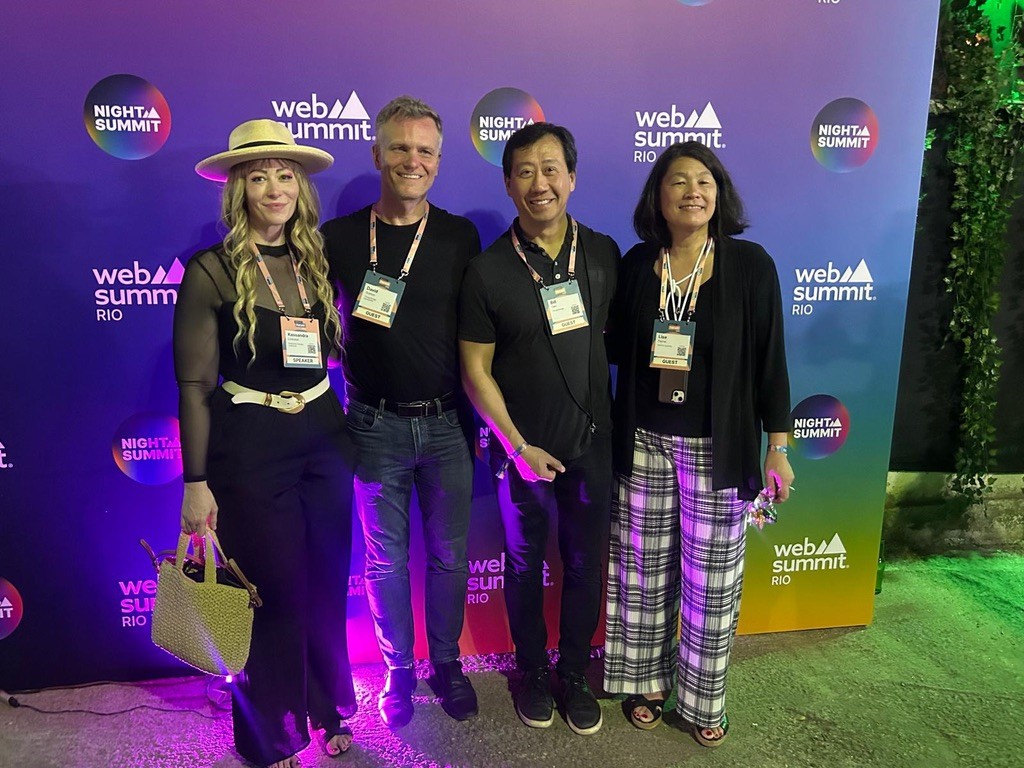
A City at an Inflection Point: how to build Legacy and the Long Game
Today, Web Summit is officially hosted in Vancouver in 2026 and 2027 with a possibility to extend. The economic impact? Projected at $250,000,000 – $300,000,000. But for Linklater, it’s not about numbers.
With Web Summit 2025 completed, Linklater sees Vancouver at the edge of transformation.
Her hope is that Web Summit becomes a platform to unify sectors and unleash bold new thinking. That it catalyzes investment, boosts talent mobility, and tells the stories of Vancouver’s creatives, technologists, and entrepreneurs.
“We have a shot at building an inclusive, globally connected innovation economy – rooted in our own values, but ready to scale,” she says.
Linklater believes the next wave of innovation will come from cities that embrace economic diplomacy — not just between countries, but between industries, communities, and cultures.
“Vancouver can be that city,” she says. “We already are.”
Standing on the Shoulders of Civic Giants
Linklater sees herself as part of a long tradition of civic builders – individuals who had the courage to ask the right questions, at the right time, to the right people.
That’s how Grace McCarthy brought Expo 86 to Vancouver. On a lunch break in London, she asked why we’d never hosted a world’s fair. “Because you’ve never asked,” came the reply. “Well, I’m asking now,” she said. That simple question – and the boldness to ask it – changed the course of Vancouver’s history.
That’s how Ron Basford transformed Granville Island. He looked at a derelict industrial site and said: this could be something extraordinary. And then he made it happen. Granville Island, backed by a $24.7 million public investment, became one of the most cherished cultural and economic anchors in the country — now home to 275 businesses, generating over $250 million in annual economic activity. It didn’t happen because someone followed a manual. It happened because they followed vision.
Expo 86 didn’t just introduce Vancouver to the world – it gave us the SkyTrain, BC Place, the Cambie Street Bridge, and a Convention Centre. It sparked the revitalization that turned this city into one of the most livable on Earth.
“We’re here because people before us dared to believe that Vancouver could be more,” Linklater says. “That same spirit is what we’re channeling now.”
Now, with Web Summit officially coming to Vancouver, Linklater is focused on what it unlocks.
“Expo 86 changed Vancouver forever. Granville Island created a cultural and economic anchor. This is our generation’s opportunity to create something lasting,” she says.
She dreams of artist-in-residence programs, global investment pipelines, Indigenous economic leadership, and youth-led showcases.
“I want every kid in East Van, Surrey, or Prince Rupert to feel like they belong in this story,” she says. “I want our artists to be funded. Our AI researchers to be celebrated. Our entrepreneurs to be seen.”
And once again, Vancouver finds itself at an inflection point.
“Web Summit is not the answer – it’s a platform,” she continues. “It’s not about tech hype – it’s about civic imagination. It’s not about individual glory – it’s about ecosystem leadership.”
And when it comes to ecosystem building, Linklater insists, there’s only one rule:
All of us are better than any one of us.
Bringing the Canvas Here
Linklater never intended to bring a finished product to Vancouver – she intended to bring a blank canvas. Her vision for Web Summit Vancouver was never just about the event itself, but what would be created on top of it.
“This isn’t just about importing a world-class tech conference,” she says. “It’s about inviting the entire ecosystem — our artists, our founders, our students, our investors — to paint what comes next.”
She dreams of seeing a world-class creative tech and art festival evolve in tandem with Web Summit. One that blurs the lines between sectors, between culture and commerce, between public good and private ambition. She hopes to see capital flowing to overlooked founders, spotlight on youth from Prince Rupert, Surrey, Saskatoon, and Moncton. She wants to see students walk into the summit floor with a pitch deck and walk out with a mentor or investor.
“This needs to be a national moment. Maybe one year it’s the Halifax takeover, then the Toronto takeover, the Calgary takeover. Vancouver might have been the start, but it’s not the end. We’re all building this together.”
How to Make the Most of Web Summit: Linklater’s Playbook
If you ask Linklater how to extract the most value from Web Summit, she’ll tell you the truth: the main stage matters – but the magic happens outside the Convention Centre.
“It’s what happens in the alleyways, in the hotel lobbies, on the side patios. It’s who you meet and what story you tell,” she says. “Web Summit is a platform. But we – the entrepreneurs, the storytellers, the organizers – we are the story.”
She encourages Canadian founders to build side events, host curated meetups, and craft their own narrative.
“Don’t wait to be on someone else’s panel. Create your own dinner, your own roundtable, your own rooftop meetup,” she says. “That’s how you draw in global investors. That’s how you create gravity.”
Linklater believes the value of Web Summit lies in the one-on-one connections – the unstructured time where deals are born and partnerships are forged.
Her advice? Be intentional. Be bold. Be generous.
“And remember,” she says, “you’re not just pitching your company. You’re helping shape the global perception of Canadian innovation. So own your message – and make it unforgettable.”
What’s Next for Linklater
After co-founding Frontier Collective and co-chairing the exploratory process and helping secure Web Summit for Vancouver, Linklater isn’t slowing down. If anything, she’s just getting started.
Her next chapter? A bold leap into venture capital and systems design — with a clear mission: to unlock the economic potential of the next generation of Canadian founders, creatives, and civic innovators.
Under the banner of Tenacious Ventures, Linklater is building what she describes as a “next-generation investment platform”- part venture fund, part storytelling engine. Inspired by her work across international trade, economic diplomacy, and ecosystem design, Tenacious Ventures aims to bridge the gap between capital and communities too often overlooked by traditional VC.
“I’ve always been drawn to the hardest problems,” she says. “And right now, one of the hardest – and most important – is how we bring risk capital into the Canadian market in a way that’s inclusive, regenerative, and future-proof.”
Tenacious Ventures is more than a firm. It’s a thesis: that Canada needs bold new vehicles for wealth creation, ownership, and cultural leadership in the 21st century. That venture capital needs to evolve from extractive to additive — from gatekeeping to scaffolding.
“Web Summit was never the destination,” she says. “It was the test. Could we build something cross-sector, cross-partisan, cross-country—and do it on our own terms?”
The answer, it turns out, was yes.
Now, with Tenacious Ventures, Linklater is taking that same ethos to the capital markets – backing the people, platforms, and policies that will define Canada’s next economy.
Her approach blends hard strategy with soft power. Nation-building with next-gen investing. Startup agility with civic imagination.
Her closing reflection says it all:
“Canada doesn’t need more gatekeepers. We need more bridge-builders. That’s the work I want to do now – and the legacy I hope to leave.”
Author Profile
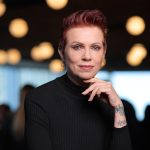
- This story is created in collaboration between Helen Siwak and the featured subject. As the founder and publisher of Portfolio.YVR Business & Entrepreneurs Magazine, Helen works closely with entrepreneurs to share their paths of innovation, resilience, and growth. Each story in this series is co-developed through interviews and first-person insights, blending authentic voices with Helen’s editorial expertise to highlight the remarkable individuals shaping British Columbia’s business landscape.
Latest entries
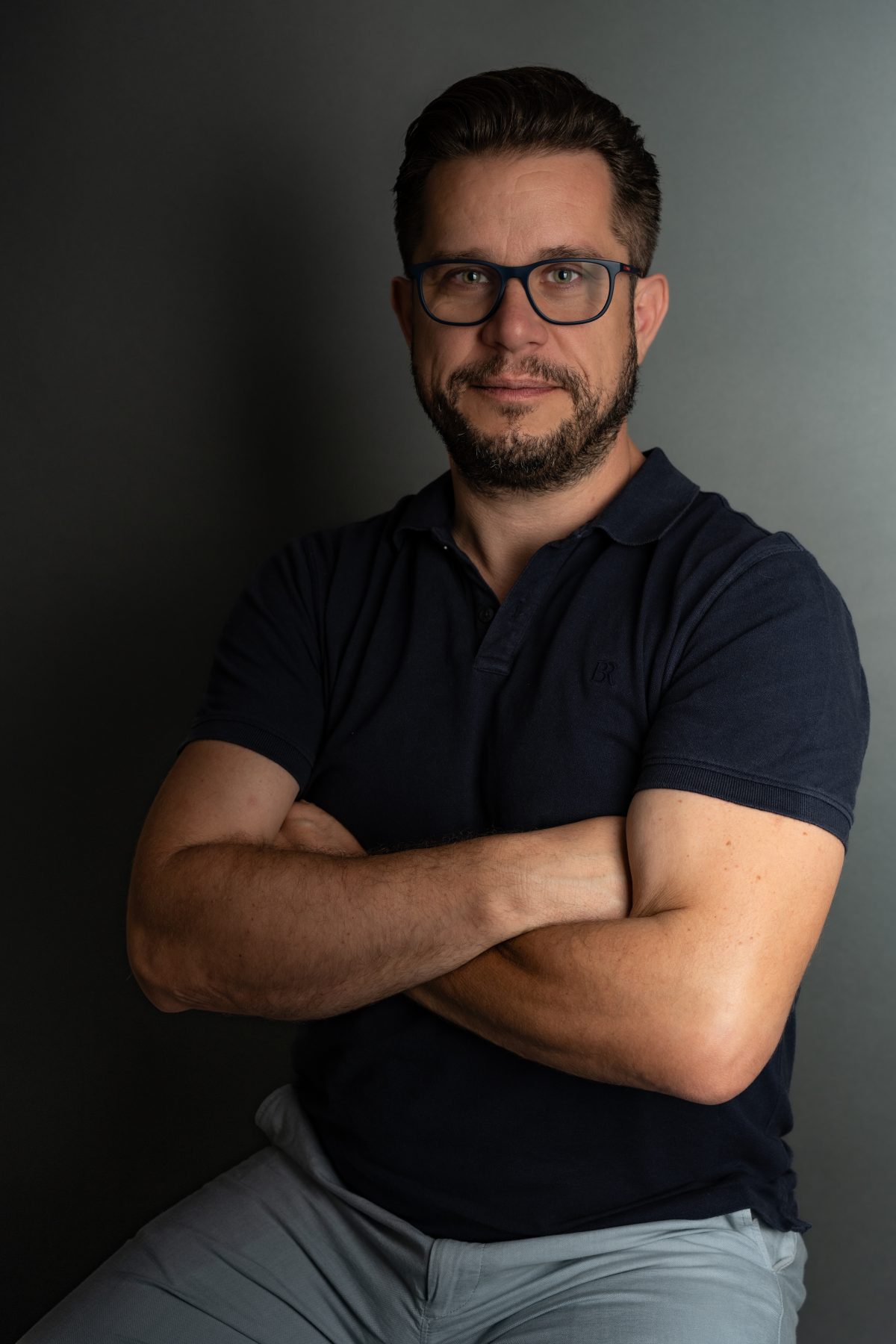 People of Portfolio.YVRFebruary 23, 2026Marko Sarunac Announces QRbolt Achieves GS1 Canada Qualified Solution Provider Status
People of Portfolio.YVRFebruary 23, 2026Marko Sarunac Announces QRbolt Achieves GS1 Canada Qualified Solution Provider Status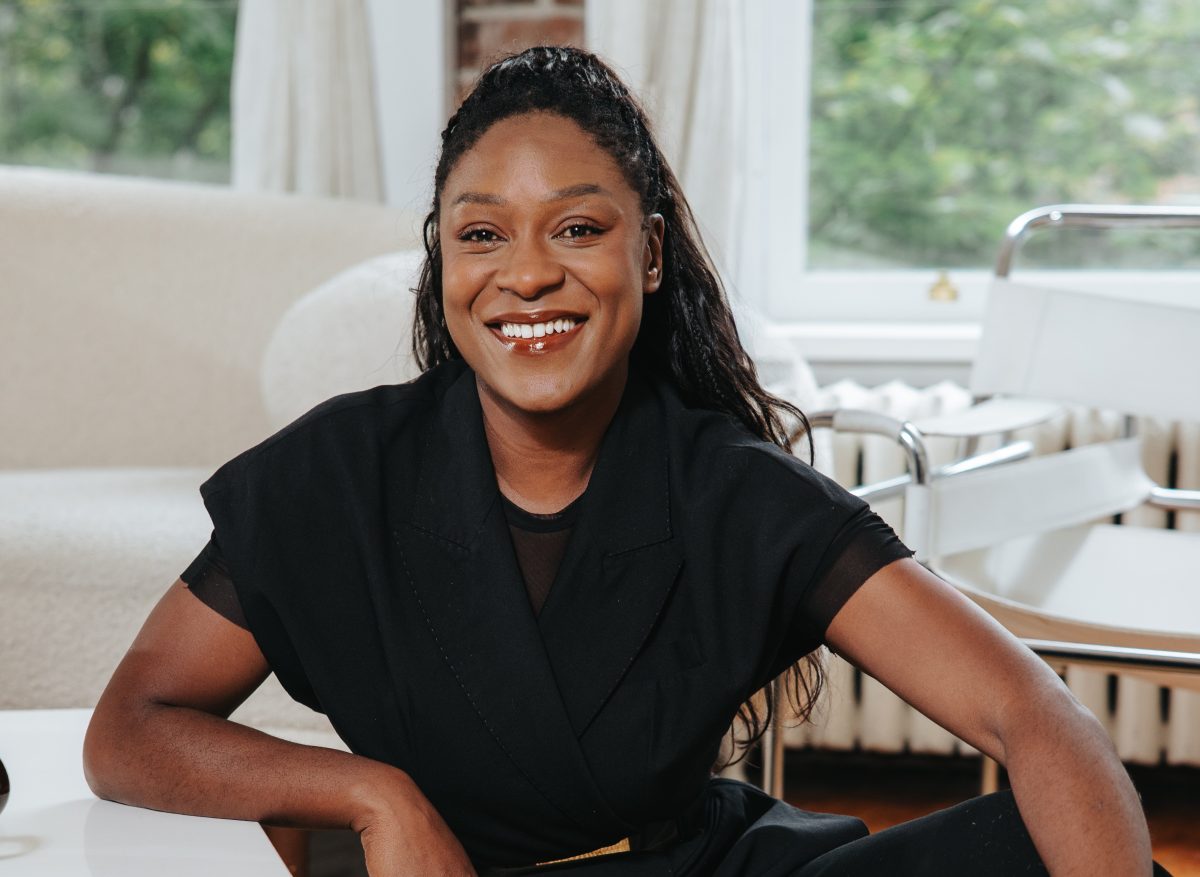 PORTFOLIO.YVRFebruary 19, 2026Ally R. Potel: From Observation to Impact, Leading Thoughtful Experience Design Through Flyberry Group Inc.
PORTFOLIO.YVRFebruary 19, 2026Ally R. Potel: From Observation to Impact, Leading Thoughtful Experience Design Through Flyberry Group Inc.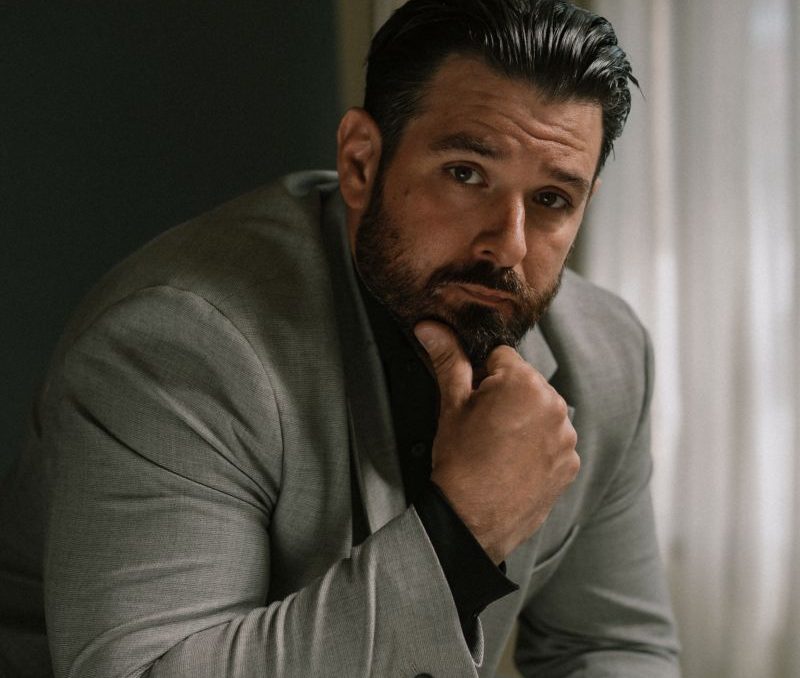 PORTFOLIO.YVRFebruary 19, 2026Ryan Anthony: Where Strategy, Sales, and Human-Centred Leadership Converge at Outcomes. Not Ideas.
PORTFOLIO.YVRFebruary 19, 2026Ryan Anthony: Where Strategy, Sales, and Human-Centred Leadership Converge at Outcomes. Not Ideas.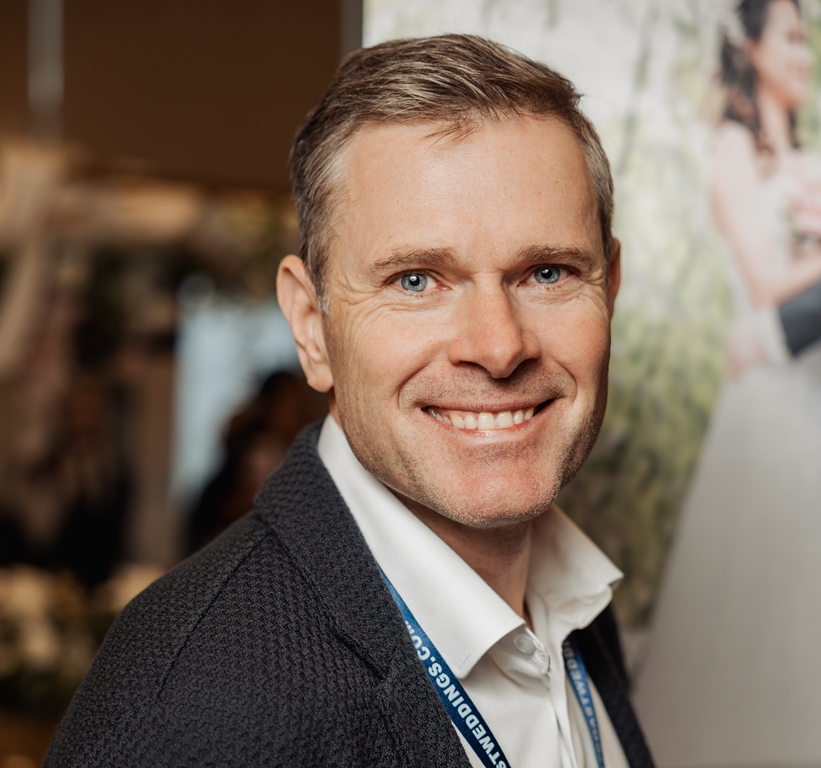 PORTFOLIO.YVRFebruary 18, 2026Evgeny Demin: Building a Versatile Visual Practice Through Demin Photography
PORTFOLIO.YVRFebruary 18, 2026Evgeny Demin: Building a Versatile Visual Practice Through Demin Photography
